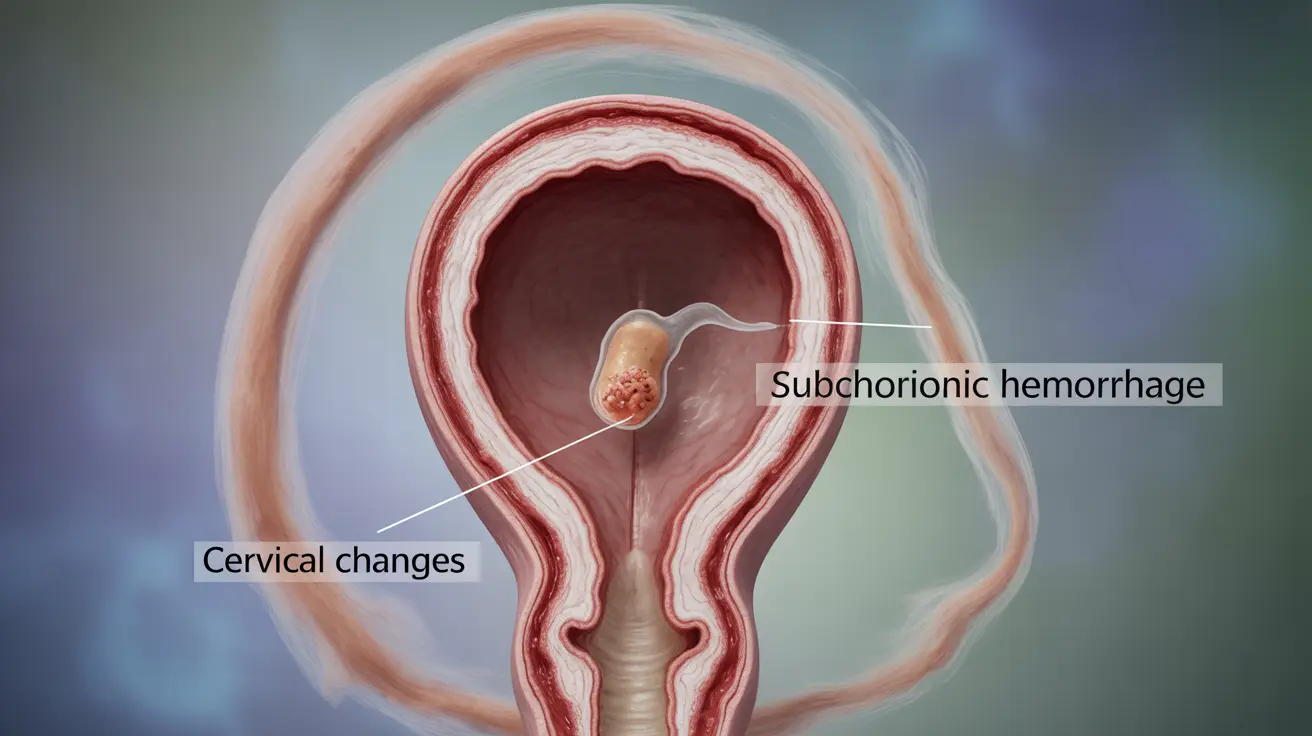Experiencing spotting during early pregnancy can be concerning for expectant mothers. At 7 weeks pregnant, many women may notice light bleeding or spotting, which can cause anxiety about their pregnancy's health. Understanding what's normal and what requires medical attention is crucial for both peace of mind and ensuring proper care during this sensitive time.
This comprehensive guide will help you understand the causes of spotting at 7 weeks, distinguish between normal and concerning symptoms, and know when to seek medical attention.
Common Causes of Spotting at 7 Weeks
Several factors can contribute to spotting during early pregnancy, particularly around the 7-week mark:
Hormonal Changes
Fluctuating hormone levels during early pregnancy can cause light spotting. This is often harmless and typically resolves on its own as your pregnancy progresses.
Cervical Changes
During pregnancy, your cervix becomes more sensitive and develops additional blood vessels. Activities like sexual intercourse or vaginal examinations can irritate the cervix and cause temporary spotting.
Subchorionic Hemorrhage
This occurs when blood collects between the uterine wall and the chorion (the outer fetal membrane). While it can cause spotting, many subchorionic hemorrhages resolve without complications.
Normal vs. Concerning Spotting
What's Considered Normal
Normal spotting at 7 weeks typically:
- Is light pink or brown in color
- Occurs intermittently
- Doesn't include clots
- Isn't accompanied by severe cramping
- Stops within a few days
Warning Signs
Seek immediate medical attention if you experience:
- Bright red bleeding
- Heavy bleeding (soaking through a pad)
- Severe cramping or abdominal pain
- Dizziness or fainting
- Tissue passing through the vagina
Prevention and Management
While not all spotting can be prevented, certain measures can help reduce its likelihood:
Lifestyle Modifications
Consider these protective measures:
- Avoid strenuous exercise
- Take rest breaks throughout the day
- Stay hydrated
- Avoid lifting heavy objects
- Practice gentle exercise as approved by your healthcare provider
Self-Care Tips
When experiencing spotting:
- Use panty liners instead of tampons
- Keep track of bleeding patterns
- Avoid sexual activity until cleared by your doctor
- Rest when possible
- Stay in contact with your healthcare provider
Frequently Asked Questions
Is spotting normal at 7 weeks of pregnancy?
Yes, light spotting can be normal at 7 weeks of pregnancy. It's relatively common and often results from hormonal changes or cervical sensitivity. However, any bleeding should be reported to your healthcare provider for proper evaluation.
What causes light spotting during early pregnancy, especially around 7 weeks?
Light spotting at 7 weeks can be caused by hormonal changes, cervical sensitivity, implantation bleeding (though this usually occurs earlier), or minor irritation of the cervix. Some women may experience spotting after sexual activity or vaginal examinations.
How can I tell the difference between implantation bleeding and a potential miscarriage?
Implantation bleeding is typically light pink or brown, lasts only a few days, and occurs earlier in pregnancy. Potential miscarriage bleeding is usually heavier, bright red, may contain clots, and is often accompanied by cramping. However, only a healthcare provider can make a definitive diagnosis.
When should I see a doctor if I experience spotting or bleeding at 7 weeks pregnant?
Contact your healthcare provider immediately if you experience bright red bleeding, heavy bleeding, severe cramping, passing tissue, or any bleeding that makes you uncomfortable. While some spotting is normal, it's always better to err on the side of caution.
What symptoms along with spotting might indicate a serious problem during early pregnancy?
Concerning symptoms that warrant immediate medical attention include severe cramping or pain, heavy bleeding, passing tissue or clots, fever, chills, severe dizziness, or fainting. These symptoms could indicate complications that require prompt medical evaluation.




